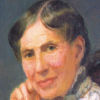Clara Barton

Clara Barton
Clarissa "Clara" Harlowe Bartonwas a pioneering nurse who founded the American Red Cross. She was a hospital nurse in the American Civil War, a teacher, and patent clerk. Barton is noteworthy for doing humanitarian work at a time when relatively few women worked outside the home. She had a relationship with John J. Elwell, but never married...
NationalityAmerican
ProfessionEntrepreneur
Date of Birth25 December 1821
CityOxford, MA
CountryUnited States of America
What armies and how much of war I have seen, what thousands of marching troops, what fields of slain, what prisons, what hospitals, what ruins, what cities in ashes, what hunger and nakedness, what orphanages, what widowhood, what wrongs and what vengeance.
Offering a hand up is not a hand-out.
Although its growth may seem to have been slow, it is to be remembered that it is not a shrub, or plant, to shoot up in the summerand wither in the frosts. The Red Cross is a part of us--it has come to stay--and like the sturdy oak, its spreading branches shall yet encompass and shelter the relief of the nation.
If I were to speak of war, it would not be to show you the glories of conquering armies but the mischief and misery they strew in their tracks; and how, while they marched on with tread of iron and plumes proudly tossing in the breeze, some one must follow closely in their steps, crouching to the earth, toiling in the rain and darkness, shelterless themselves, with no thought of pride or glory, fame or praise, or reward; hearts breaking with pity, faces bathed in tears and hands in blood. This is the side which history never shows.
Long ago I added to the true old adage of "What is everybody's business is nobody's business," another clause which, I think, morethan any other principle has served to influence my actions in life. That is, What is nobody's business is my business.
Economy, prudence, and a simple life are the sure masters of need, and will often accomplish that which, their opposites, with a fortune at hand, will fail to do.
The Red Cross in its nature, it aims and purposes, and consequently, its methods, is unlike any other organization in the country.It is an organization of physical action, of instantaneous action, at the spur of the moment; it cannot await the ordinary deliberation of organized bodies if it would be of use to suffering humanity,[ellipsis in original] it has by its nature a field of its own.
A ball had passed between my body and the right arm which supported him, cutting through the sleeve and passing through his chest from shoulder to shoulder. There was no more to be done for him and I left him to his rest. I have never mended that hole in my sleeve.
I don't know how long it has been since my ear has been free from the roll of a drum. It is the music I sleep by, and I love it.... I shall remain here while anyone remains, and do whatever comes to my hand. I may be compelled to face danger, but never fear it, and while our soldiers can stand and fight, I can stand and feed and nurse them.
While soldiers can stand and fight.I can fight and feed them
The surest test of discipline is its absence.
People should not say that this or that is not worth learning, giving as their reason that it will not be put to use. They can no more know what information they will need in the future than they will know the weather two hundred years from today.
This conflict is one thing I've been waiting for. I'm well and strong and young - young enough to go to the front. If I can't be a soldier, I'll help soldiers.
If woman alone had suffered under these mistaken traditions [of women's subordination], if she could have borne the evil by herself, it would have been less pitiful, but her brother man, in the laws he created and ignorantly worshipped, has suffered with her. He has lost her highest help; he has crippled the intelligence he needed; he has belittled the very source of his own being and dwarfed the image of his Maker.